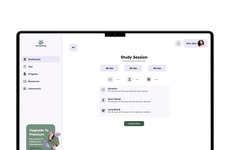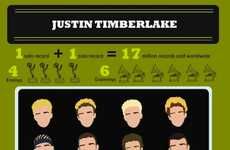
The Online Colleges Research Indicates That Students Rarely Hit the Books
Sarah Nazim — September 1, 2012 — Lifestyle
References: facebook & onlinecolleges.net
An Online Colleges research finds a decline in the number of hours that college students spend hitting the books. In fact, the average number of hours spent studying has dropped by 50% since the 1960s.
About 36% of students study less than five hours a week, and it seems that the subjects most guilty of this tendency include architecture, chemistry, art and music. Surprisingly, the study finds that on average, students who studied less than five hours a week have an impressive GPA of 3.6.
According to this study, some of the reasons as to why there is such as huge shift in the number of study hours include laziness, distracting college culture, part-time jobs and the efficiency of modern technology.
About 36% of students study less than five hours a week, and it seems that the subjects most guilty of this tendency include architecture, chemistry, art and music. Surprisingly, the study finds that on average, students who studied less than five hours a week have an impressive GPA of 3.6.
According to this study, some of the reasons as to why there is such as huge shift in the number of study hours include laziness, distracting college culture, part-time jobs and the efficiency of modern technology.
Trend Themes
1. Reduced Study Hours - Online Colleges research illustrates a decline in average study hours by 50% since the 1960s, indicating a need for more flexible study methods and formats that suit modern life.
2. Alternative Learning Methods - The efficiency of modern technology as a learning tool suggests that businesses could invest in producing alternative methods of learning to encourage greater engagement and participation from students around their needs.
3. Shifts in Learning Patterns - The move towards subjects that require less study, such as art and music, suggests the need to review their implementation alongside other subjects in line with the changing trends so that future students are prepared with skills relevant to the workforce.
Industry Implications
1. Education - This research points towards an opportunity for educational institutions to reflect on the current learning methods, and to start investing in more tailored, dynamic and relevant programs in line with modern life and technology.
2. Technology - Efficiency in modern digital technology presents a chance for tech companies to explore the creation of new edtech platforms or development of existing ones, enabling students to learn at their own pace anytime, anywhere, and from any device, which ultimately renders the use of traditional textbooks ubiquitous.
3. Art and Music - The trend towards subjects that require less study and discipline offers an opportunity for educational institutions and creatives to develop innovative curriculums that leverage modern approaches to teaching the disciplines and enabling relevant skill transferability to the job market.
1.9
Score
Popularity
Activity
Freshness























